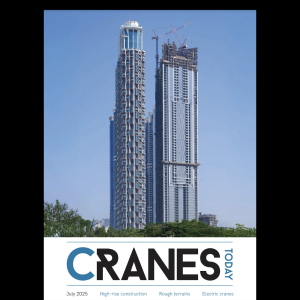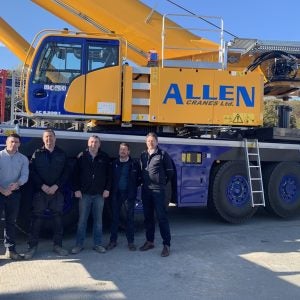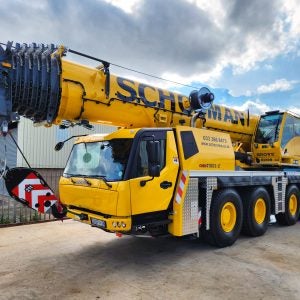“We can see that the building activities are on a high, especially to be able to deliver a total rental solution to our customers: that also includes cranes,” says Sweden CEO Magnus Rosén, who also heads up the firm’s Sweden, Norway and Denmark businesses. [Rosén left the company after this interview took place in Mid-May].
The company does not have a significant crane fleet. But in Stockholm, Sweden, the company re-rents mobile cranes from entrepreneurs, and other crane rental companies in Sweden. Over the past eight years, the company has set up rental deals with crane owners in the Stockholm area.
“We saw the need for mobile cranes, but we didn’t want to invest,” he says. “The crane business tends to go up and down a lot. When you see the peak season, as we are in now, there is a lot of business, but when it goes down, it is a bit risky to have too much capital. We try to be flexible by re-renting and now owning a bit ourselves.” Rosén says that one employee, the crane department manager, owns cranes used by the company.
He said that the company does not have a defined purchasing strategy. “We have hired entrepreneurs to supply customers’ needs. Customers call us.”
In May, its Norwegian subsidiary bought the mini-crane fleet of Unic dealer Kranentreprenoren AS. “This is a new product in Norway; there are probably only 50-60 mini-crawlers in total in the whole of Norway,” says Cramo Norway managing director Finn Lokken. “We had about five before, and we bought 17, so now we have almost half of this market. In the future we may buy more. They are a good product, and we use them in more places than today they use big mobile cranes.” The Norway division, which also acquired a depot in Lindeberg, Norway, will keep them for its own use.
He added that a recent joint venture in Russia with Moscow-based crane rental company Rentakran for access equipment might also yield business sharing cranes in the future.






